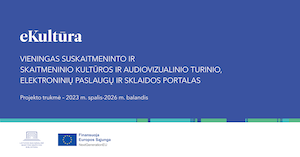At the beginning of 2020, the Covid-19 pandemic became an enormous challenge for humanity. Every day the number of infected and dead grows higher, as there is no vaccine and a shortage of protective equipment. Many countries have introduced a quarantine, which brings painful economic consequences and additional psychological impacts to people's wellbeing. All of this is reflected in contemporary folklore.
On the internet, especially in social media networks, the pandemic folklore can be divided into two groups: humorous and serious. The first group comprises anecdotes (“Thank you coronavirus - the kids finally understand that we need to wash our hands. 😊 Maybe some other virus will teach them to clean their room? 😊”), and also include humorous pictures or memes, as well as comics, for example:
.jpg)
"There's a gap in your CV... What were you doing in 2020?"
"Washing my hands..."
Serious folklore encompasses all that could be called conspiracy theories, which spread through marginal or “alternative” portals, as well as on social media in recordings and in comments:
"Read the book COVID-19 that was released in 1981.then it will be much clearer what kind of virus and what kind of vaccine this is.only to fool common people.My daughter lives in Swizerland so there they spoke already in October that the Chinese failed with their experiments and they spread the contagion.and when people die they blame the snakes 



 . read it it's a very good answ to the corin virus"
. read it it's a very good answ to the corin virus"
Another component of this group is what can be called 21th century folk medicine – recommendations shared among each other for treating Covid-19 and suggestions for protecting oneself from the virus, for example:
"All the pickled products, salt, salty food might help now. Especially for those who are still healthy, as prevention products. My topical recipe. Pickles, garlic and onion, tiny drop of oil, who likes it saltier, might add salt. I heard legends that schnapps helps too. So I don't think that they would contradict one another."
Serious folklore also includes religiously-based beliefs, folk piety initiatives, and the like. For example:
"There's been a chain of prayers of Hail Mary created for those who are suffering from Coronavirus. Say the prayer and send this message for 10 more people. Let me know if you're not going to do it, so that the chain of prayer would not break."
The folklore of the pandemic is being recorded by scholars all around the world for research purposes.
Thus we invite you to help in collecting it! Send digital collections of photographs, screenshots, or word files (put in a folder, numbered and compressed with either 7zip or WinRAR programs) directly or through a WeTransfer platform to the address
tautosakosarchyvas@llti.lt.
Prepared by Asta Skujytė-Razmienė
.jpg)
.jpg)
.png)
.jpg)





